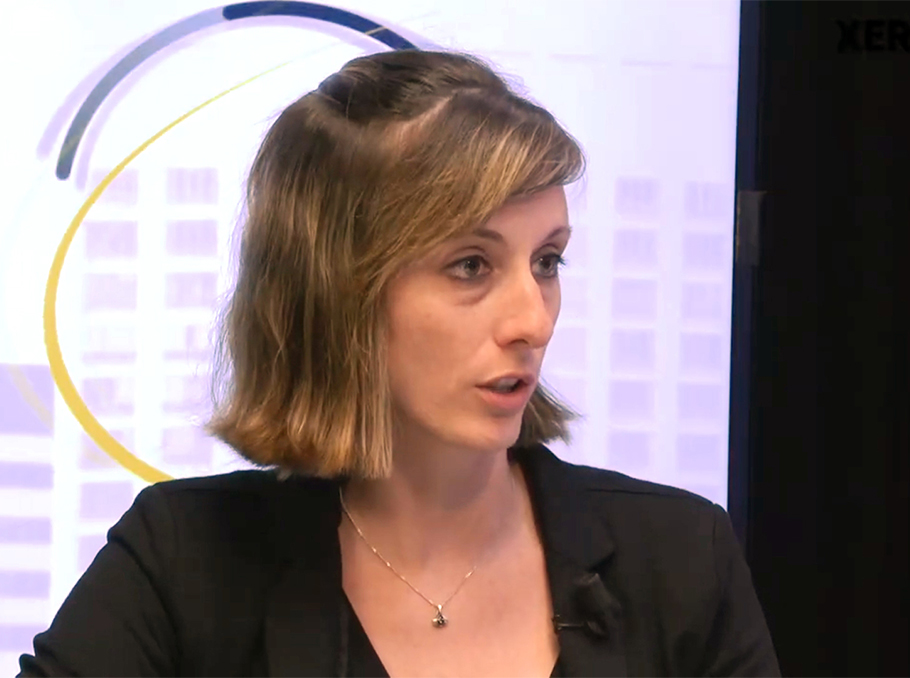As AI takes over routine tasks also in finance and economics, financial professionals need to shift their focus toward strategic thinking, ethical leadership, and data-driven decision-making to stay relevant in the field.
To explore the transformations brought by AI and techoinolgies in the field finance and economics, Mediamax spoke with Professor Hassan Yazdifar, a Head of the Department of Accounting, Finance and Economics at Bournemouth University (UK). He also leads “Financial Reporting and Management Accounting” (FRMA) module in the Pan-European Executive MBA program.
The Pan-European Executive MBA program, jointly offered by the University of York’s European campus CITY College and the Faculty of Economics and Management at the University of Strasbourg, provides Armenian applicants with the opportunity to receive high-quality British and European education and two MBA diplomas from York and Strasbourg Universities, while continuing to live, work, and study in Armenia.
We also discussed with Professor Yazdifar how the Executive MBA program equips professionals with key skills to navigate AI’s rapid integration in the world of finance.
- Across industries, digital technologies and AI are reshaping core operations. How have these developments influenced the fields of finance and economics in recent years?
- Digital technologies and artificial intelligence (AI) have brought about a paradigm shift in the way finance and economics are understood and practised. In finance, digital transformation has automated and accelerated transactional processing, enhanced decision-making accuracy, and enabled the emergence of intelligent forecasting tools. AI-driven systems can now assess credit risk, predict cash flow trends, and detect financial fraud in real time—functions that were traditionally labour-intensive and reactive.
In economics, the proliferation of big data and machine learning has allowed economists to model and interpret macroeconomic variables with greater precision. Policy simulations that once took weeks can now be run in hours, incorporating behavioural data, consumer sentiment, and supply chain analytics. From central banks to corporate finance departments, digital innovation is driving a move from retrospective analysis to predictive and prescriptive insight. Ultimately, finance and economics are no longer just about numbers—they are about intelligent systems that interpret complex information and support strategic agility.
- As someone involved in both research and consultancy, what real-world applications of AI-driven platforms have you found most impactful in improving performance—specifically within the financial sector?
- In both academic research and advisory work with industry, I have seen several AI applications that significantly enhance performance in the financial sector. Among the most impactful is the use of AI in predictive cash flow forecasting, which enables organisations to manage liquidity more efficiently and proactively. By analysing historical data and market indicators, AI models can flag potential shortfalls or surpluses well in advance.
Another notable application is in credit scoring, particularly in emerging markets. AI platforms can evaluate creditworthiness by incorporating non-traditional data sources such as mobile phone usage or transaction histories—offering financial access to individuals and SMEs who might otherwise be excluded.
AI is also revolutionising fraud detection and cybersecurity. Machine learning algorithms can now detect anomalies across millions of transactions within seconds, reducing financial crime risk dramatically.
Additionally, AI-enhanced management dashboards are empowering finance leaders to visualise trends, monitor KPIs, and make data-informed decisions. These platforms bridge finance and strategy, allowing CFOs to respond in real time to changes in performance metrics, external pressures, or market dynamics.
- All of this is impressive and speaks to significant progress, but there are also several risks associated with the use of AI. What ethical concerns do you see in the integration of AI-powered tools and systems in financial operations? How should these risks be managed?
- The integration of AI into financial operations, while highly beneficial, is not without significant risks and ethical challenges. Algorithmic bias is one of the most pressing concerns. If AI systems are trained on data sets that reflect existing inequalities, they can perpetuate or even exacerbate those biases—leading to unfair lending practices or discriminatory financial decisions.
Another issue is the opacity of AI models, often referred to as the “black box” problem. Many AI systems make decisions in ways that are difficult for humans to interpret or audit, raising concerns about accountability, especially in regulated environments.
Additionally, data privacy and cybersecurity risks increase as financial institutions integrate multiple AI-driven platforms. With vast amounts of sensitive data being processed and stored, the potential for breaches and misuse is significant.
To manage these risks, organisations must implement robust governance frameworks that include ethical oversight, transparency standards, and regular audits of AI systems. It is also essential to maintain human oversight, particularly in high-stakes decision-making. AI should support—not replace—human judgment, ensuring that ethical considerations remain at the forefront of financial innovation.
- Are there specific areas where companies may no longer need financial professionals, and where AI could fully take over? How has the role of finance professionals evolved in light of these changes?
- There are indeed specific areas within finance where AI can now perform tasks with greater speed and accuracy than humans. Functions such as invoice processing, payroll management, expense tracking, and reconciliations are increasingly being handled by AI and robotic process automation (RPA). These are highly standardised processes that benefit from automation's consistency and efficiency.
However, the evolution of AI does not spell the end of the finance professional—it signals a shift in their value proposition. Rather than executing routine tasks, finance professionals are now expected to add value through interpretation, strategy, and ethical oversight. Their roles have expanded into areas such as financial storytelling, strategic risk analysis, scenario planning, and business partnering.

Photo: City College
In many ways, the finance function is evolving from a compliance and reporting centre to a strategic advisory hub. Professionals must now translate complex data into business insights, work cross-functionally with operations and marketing, and play an active role in shaping the future of their organisations.
- These new challenges create the need for new skills. What are the essential skills that finance professionals need in today’s world to remain competitive?
- To remain competitive in today’s finance landscape, professionals must cultivate a blend of technical, analytical, and interpersonal competencies. Digital literacy is now a core requirement. Finance professionals must be comfortable working with data analytics tools, visualisation software (like Power BI or Tableau), and enterprise platforms such as SAP or Oracle. Understanding how AI algorithms work—at least conceptually—is also increasingly important.
Beyond technical skills, professionals must develop a strategic mindset—one that allows them to assess the broader implications of financial decisions on organisational performance and sustainability. This includes the ability to interpret financial information in the context of market trends, stakeholder expectations, and long-term value creation.
Ethical awareness is equally critical. As financial systems become more data-driven, professionals must be able to identify risks, challenge assumptions, and ensure that decisions align with regulatory and moral standards.
Finally, the ability to communicate insights clearly is vital. Finance professionals must translate complex data into understandable narratives that influence senior decision-making. This combination of data fluency, critical thinking, and communication forms the foundation of the modern finance leader.
- How should finance educators adapt their teaching methods and curriculum to better prepare students for a data-driven, tech-integrated business environment? How do you approach this in your own teaching?
- Finance educators must shift from traditional content delivery toward experiential, applied learning that mirrors today’s business realities. This means integrating real-world data, technology tools, and interdisciplinary thinking into the curriculum.
In my own teaching- particularly through the Financial Reporting & Management Accounting (FRMA) module of the Executive MBA- I embed real-life case studies that demand critical thinking and decision-making under uncertainty. One key example involves the comparative financial analysis of Vodafone and Orange, where students evaluate multi-year financial statements, apply industry-specific ratios, and draw investment recommendations based on both performance data and strategic context.
I also integrate tech-enabled learning through exercises involving financial modelling, performance dashboards, and strategic scenario planning. These help students understand how technology can enhance both reporting and managerial decision-making. Assignments and class discussions are designed to reflect the complexities of contemporary business, encouraging students to view finance not in isolation, but as a driver of enterprise strategy.

Photo: City College
In short, I see my role as preparing students not just to do accounting, but to lead through finance in a digitally integrated world.
- What advice would you give to today’s finance students or early-career professionals who want to stay relevant and thrive in the rapidly evolving financial landscape?
- My advice would be threefold: stay curious, stay agile, and stay engaged. The finance profession is evolving rapidly, and those who thrive are those who continue to learn—whether that’s through formal education, certifications, or hands-on experience with emerging technologies.
Early-career professionals should aim to understand not just the “how” but also the “why” behind financial decisions. This means developing a broader awareness of business strategy, sustainability, digital transformation, and stakeholder expectations.
They should also embrace interdisciplinary learning—combining knowledge of finance with technology, behavioural economics, and even ethics—to better understand the real-world implications of financial analysis.
Finally, I would encourage them to build strong networks, engage in professional communities, and seek mentors who can challenge and inspire their thinking. In a world of constant change, it is those who can learn, adapt, and lead that will define the future of the profession.
- With the rise of online education, what do you believe remains the irreplaceable value of in-person or hybrid study at institutions like CITY College?
- Online education offers unparalleled flexibility, access, and scalability. However, there are certain dimensions of learning that are best delivered in-person or through hybrid formats—particularly in the context of executive education.
At CITY College, the in-person or hybrid learning environment fosters critical thinking through dialogue, spontaneous problem-solving, and the exchange of perspectives among professionals from diverse industries and cultures. These live interactions build professional networks, challenge assumptions, and enhance the social learning that is crucial to leadership development.
Moreover, executive students benefit greatly from real-time feedback, coaching, and group collaboration, all of which are more impactful when experienced in a shared physical or hybrid space. In this setting, we can simulate real-world decision environments, engage in debate, and co-create solutions that are immediately applicable to their workplaces.
In summary, while digital tools enhance learning delivery, the human element of education remains irreplaceable - especially for those preparing to lead in complex and uncertain environments.
Gaiane Yenokian talked to Prof. Hassan Yazdifar























